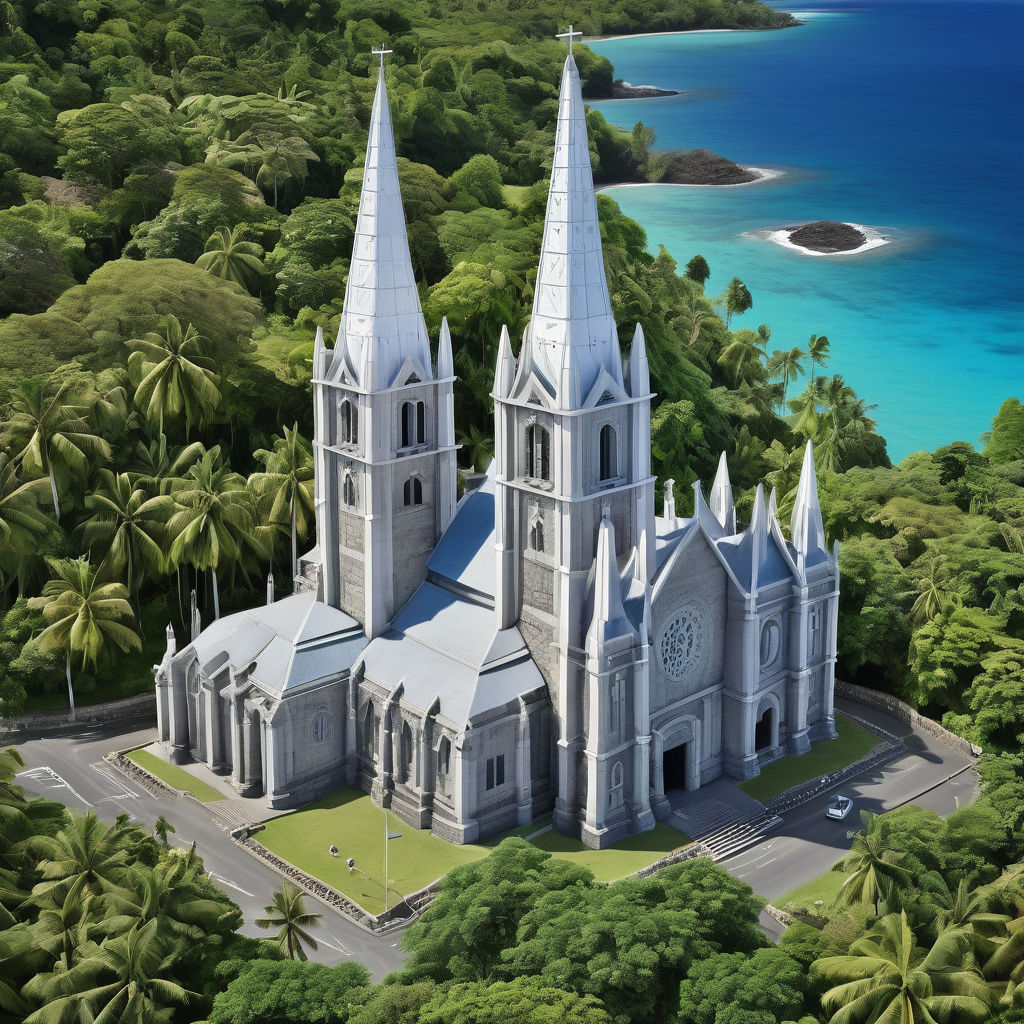Introduction to Wallis and Futuna: A Blend of Polynesian and French Cultures
Exploring the Rich Cultural Heritage and Welcoming Spirit of Wallis and Futuna

Introduction to Wallis and Futuna
Wallis and Futuna, officially known as the Territory of the Wallis and Futuna Islands, is a French overseas collectivity located in the South Pacific Ocean. It is composed of three main islands: Wallis (Uvea), Futuna, and Alofi. The territory lies about 2,000 kilometers northeast of New Caledonia and 2,800 kilometers west of Tahiti. The capital of Wallis and Futuna is Mata-Utu, located on the island of Wallis. This small territory, with a population of around 11,500 people, boasts a rich cultural heritage that blends Polynesian traditions with French influences.
Cross-national and Cross-cultural Understanding
The people of Wallis and Futuna have a unique perspective on cross-national and cross-cultural understanding, shaped by their Polynesian roots and French colonial history. The islands have been inhabited for thousands of years, with a deep-rooted Polynesian culture that is still very much alive today. However, the French influence, since the 19th century, has added a distinct layer of cultural complexity. Cultural exchanges are integral to the society of Wallis and Futuna. Traditional Polynesian ceremonies, dances, and crafts are regularly showcased in community events, which are often attended by French officials and international visitors. These events serve as platforms for cultural exchange, promoting mutual respect and understanding. Educational programs in Wallis and Futuna also play a significant role in fostering cross-cultural understanding. French is the official language of instruction in schools, but Wallisian and Futunan languages are also taught, ensuring that children grow up bilingual. Additionally, exchange programs with France and other Pacific nations help students gain broader perspectives and appreciation for different cultures. International partnerships further enhance cross-cultural understanding. The territory collaborates with various international organizations, including the Pacific Community (SPC) and the United Nations, on initiatives ranging from healthcare to environmental conservation. These partnerships facilitate knowledge exchange and help Wallis and Futuna engage with the global community.
Interactions and Social Dynamics
Interactions between the people of Wallis and Futuna and foreigners are generally marked by warmth and hospitality. The small, tight-knit communities value personal connections and are typically welcoming to outsiders. Social behaviors in Wallis and Futuna emphasize respect, community spirit, and adherence to traditional customs. Visitors often find themselves invited to local feasts (katoaga) and other cultural events, where they can experience the rich Polynesian traditions firsthand. These interactions foster a sense of inclusion and mutual respect. Communication styles in Wallis and Futuna reflect the influence of both Polynesian and French cultures. While Wallisian and Futunan languages are spoken in everyday interactions, French is commonly used in formal settings and with foreigners. The bilingual nature of the population facilitates communication and enhances mutual understanding. Language plays a critical role in the social dynamics of Wallis and Futuna. The ability to speak multiple languages not only helps in bridging cultural gaps but also preserves the cultural heritage of the islands. It allows residents to engage effectively with the outside world while maintaining their unique identity.
Views on Dating and Relationships
Dating and relationships in Wallis and Futuna are influenced by traditional values and the close-knit nature of the community. Relationships with foreigners are generally accepted, provided they respect local customs and traditions. Attitudes towards dating and relationships with foreigners are open, but they come with certain cultural expectations. Family approval and community acceptance are important aspects of relationships. Foreigners entering into relationships with locals are expected to understand and respect these cultural norms. Cultural expectations and traditions play a significant role in shaping attitudes towards relationships. Respect for elders, involvement of extended family in relationship decisions, and adherence to traditional practices are common. Foreign partners are often embraced as part of the extended family, provided they show respect for local customs.
Marriage and Family
Marrying foreigners is relatively common in Wallis and Futuna, and such marriages are generally accepted by the community. Legal considerations for marriage involve adhering to both French and local laws, depending on the nationality of the foreign partner. Marriages must be registered with the local authorities, and there are specific residency requirements for foreign spouses. Socially, family life in Wallis and Futuna revolves around strong familial bonds and communal living. Marriages between locals and foreigners are celebrated, and the community often supports these unions. Family approval is a significant aspect of marriage, and foreign spouses are expected to integrate into the local way of life, participating in family and community activities. Common practices in cross-cultural marriages include blending traditions from both cultures. For example, couples might observe traditional Polynesian wedding ceremonies alongside civil ceremonies. This integration of customs enriches family life and fosters mutual respect and understanding.